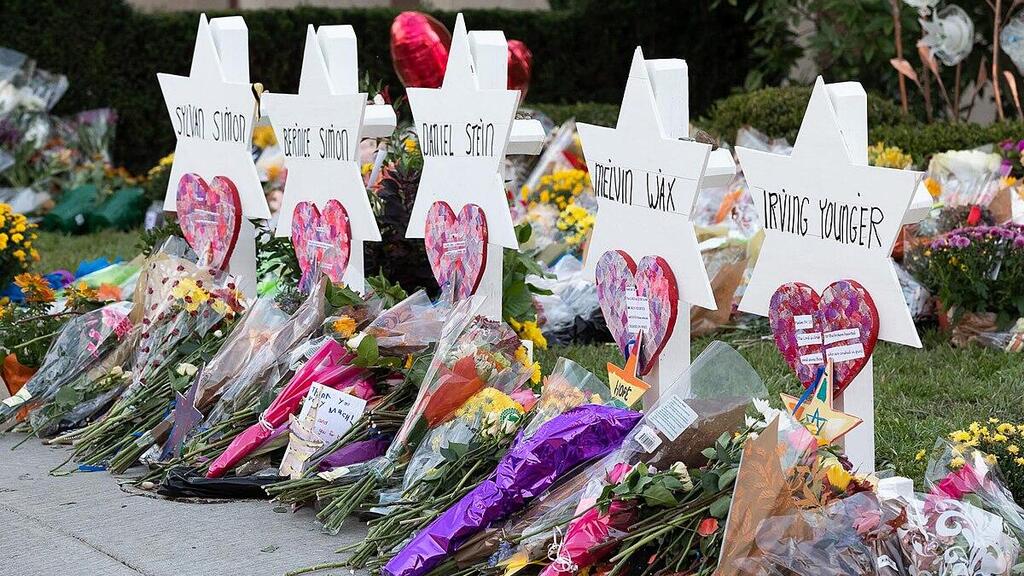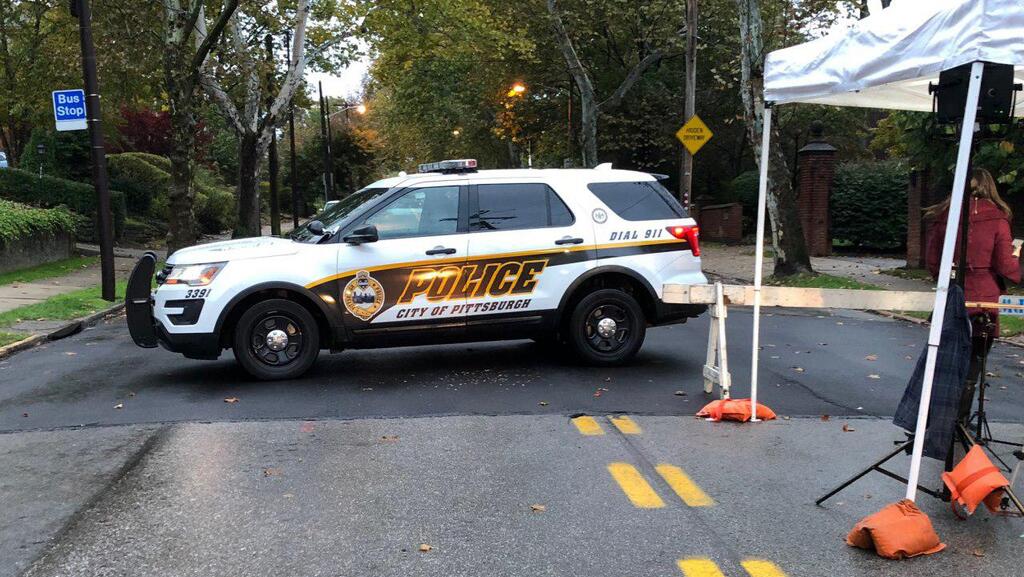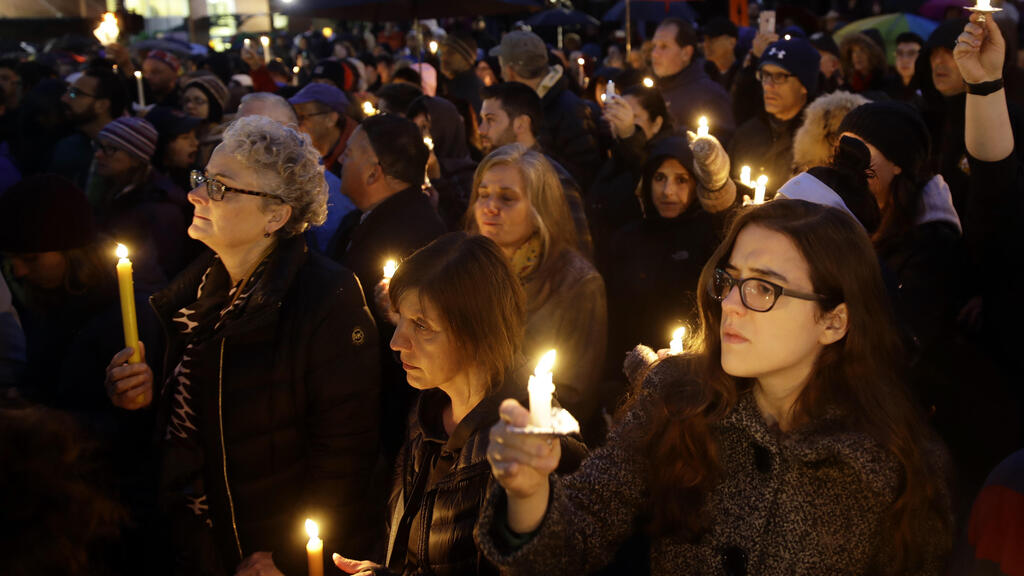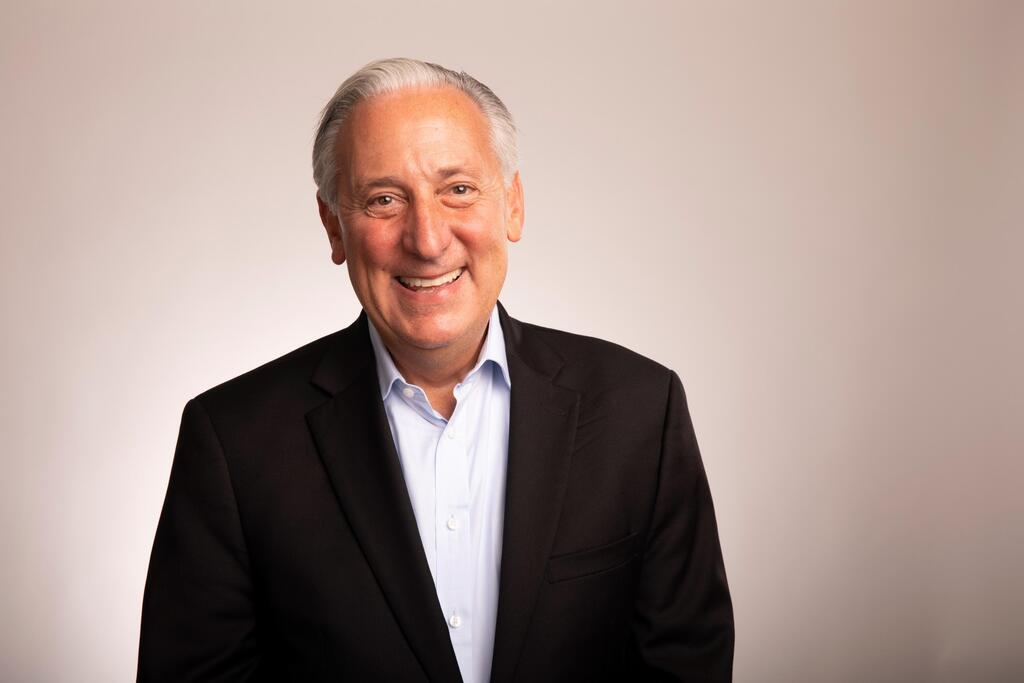On October 27, 2018, Robert Bowers committed the worst antisemitic attack in the history of the U.S., killing 11 and wounding six other worshippers at the Tree of Life synagogue in Pittsburgh.
The effects of this terrible attack is lingering across the American Jewish community to this day, four years later.
“Since 2018, the awareness of security has grown considerably,” Oren Baratz, senior vice president of external affairs at the Jewish Federation of Cleveland and senior advisor of LiveSecure at the Jewish Federations of North America, said. “There are over 60 chief security officers (CSO) in the Jewish community. Some work directly under them, and some are under the JFNA.”
According to Baratz, an Israeli living in Cleveland, the CSOs have all served in law enforcement or the military, and bring with them their expertise and good connections with law enforcement agencies.
"They are extremely dedicated. Their presence sends a powerful message to the community, and is part of the change currently taking place within it when it comes to considering security.”
Baratz said that every security incident is ultimately handled by the police and the FBI. “The CSOs’ work comes in their daily routine to unite the community in being more aware about security, with hopes that they would never have to take action,” he said.
Many of the Jewish communities in the U.S. have carried out drills simulating such an attack, following the events of 2018. “Some communities do more complex exercises – wargames, cooperation with local police, etc.”
“There are some communities that have very good security, including armed guards with radios, patrol vehicles and more. This is not the case for every community, but this undertaking is slowly spreading,” he said.
“There’s at least one community that has all of its cameras connected with the local police branch, where trained operators can talk with the police when it’s needed within seconds,” Baratz said.
“Communities also develop close working ties with local law enforcements in their areas. The police became a part of the communities' understanding of security.”
Shawn Brokos, director of community security in the Jewish Federation of Greater Pittsburgh, said that his community was focusing more on security following the attack in 2018.
“Our community continues to grow, in both strength and fortitude,” Brokos said. “We are focusing on community security. We’ve learned much from the attack, both in community management and law enforcement,” he said.
“This knowledge helped us plan what we needed to become the safest community possible. It’s a joint effort that the community has taken upon itself as part of its healing process,” Brokos said.
The emotions among American Jews are understandable as antisemitism is on the rise in the U.S. once again. A report by the Pew Research Center published last summer presented a grim image.
According to Pew, most people said that in the last five years they felt less safe as Jews in the U.S., and 75% of them fear that antisemitism in the country is more common today than it was even five years ago.
As a response to the rise of antisemitic incidents, the JFNA launched the LiveSecure campaign, in order to recruit tens of millions of dollars to ensure the safety of Jewish communities.
Through the LiveSecure grants, local federations can provide training, tools and resources needed to protect synagogues, schools, retirement homes, summer camps and other centers of Jewish life in the U.S.
7 View gallery
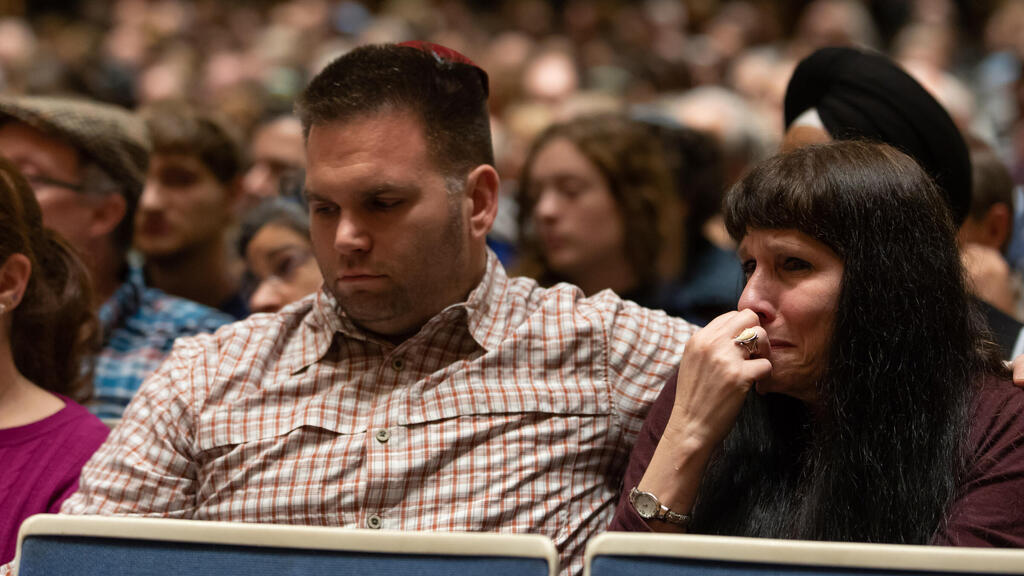

Pittsburgh Jewish community at memorial for victims of 2018 attack
(Photo: Josh Franzos)
This effort is being made in cooperation with the Secure Community Network (SCN), the security branch of the Jewish federations, along with the National Security Agency and the FBI. So far, $62 million were raised, adding to a budget of $130 million meant to aid in keeping the JFNA safe.
Jewish communities in the U.S. also cooperate with the government through a plan called NSPG, which grants funding to religious institutes (synagogues, churches, mosques). The funding aims to improve physical security to nonprofit bodies, which are under threat of terror attacks.
The goal is to align security efforts from nonprofit bodies with wider security resources of the states and municipalities. The grants are also given in order to create cooperation in emergency scenarios between private and public bodies, like government agencies.
Izaiah, a rabbi of a Jewish community in New York, said the lowering level of personal security has had an effect on his daily routine. “As a Jewish man from New York, I wear a kippa and tzizit in public without thinking about it. In recent years, with the unprecedented attacks against Jews, I leave my home praying that people will see me as a man, not a target for antisemitism.”
7 View gallery
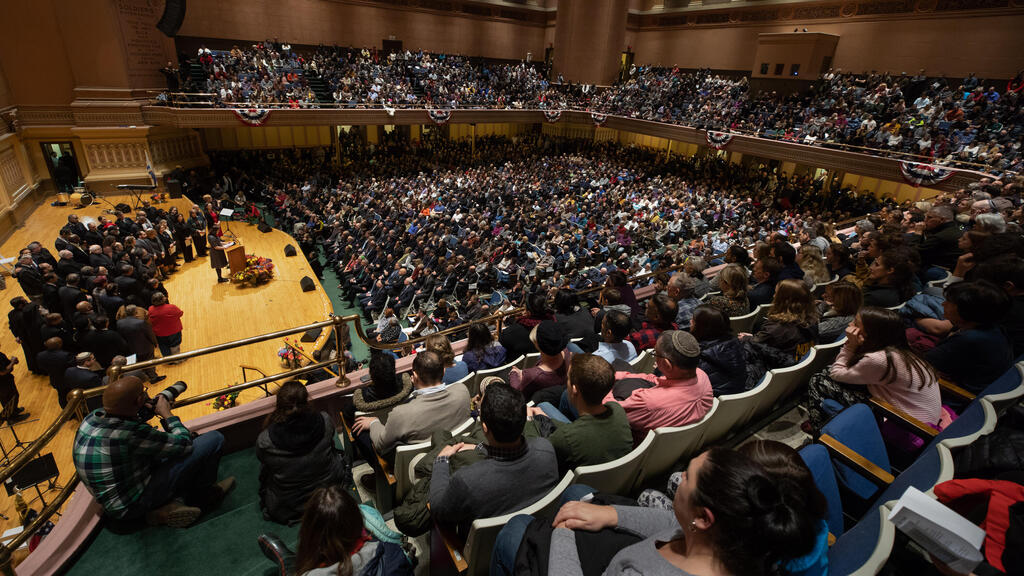

Pittsburgh Jewish community at memorial for victims of 2018 attack
(Photo: Josh Franzos)
According to Izaiah, “The attack in the Tree of Life synagogue reminded us that the meaning of being Jewish is to remember, and never forget. The daily stares that come from wearing Jewish symbols and headlines that spread hate against Jews remind us that too often the leaders are ignorant, wrong and unknowledge.”
Stewart Convu, cohead of the Jewish Federation of Northern New Jersey’s security council, said, “The fact that the federation takes the issue of security so seriously, offers me and the community members a feeling of safety at the synagogue.”
The Jewish Federation of Northern New Jersey have recently started using an alert system called NNJ Alert, which looks into intelligence reports in real time to assess potential threats and alerts members of the community.
7 View gallery
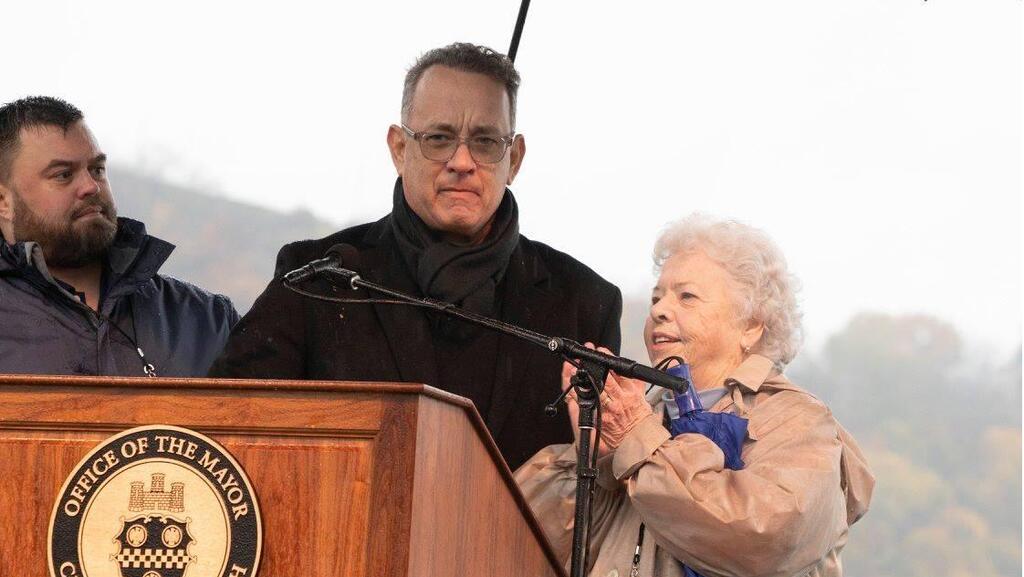

Tom Hanks talking at solidarity rally with the Jewish community following the attack
(Photo: Josh Franzos)
“My rabbi talks many times about his role being focused in making our community a warm, open and accepting one,” Convu said. “The security team, on the other hand, needs to make the building into a fortress, what’s challenging is finding the balance.
“There’s one thing I always find ironic. When I talk to Americans about security precautions that need to be taken, I often get asked ‘why’; when I hold the same talks with Israelis living in the U.S. their response is ‘how come this isn’t done already?’ This shows that compared to Israelis, we have a long way to go when it comes to security and threat prevention.”
Since the attack in Pittsburgh, different projects across the U.S. have been initiated in order to memorialize the victims and bring awareness to the importance of fighting hate crimes.
Trish Adelsic – whose father is part of the Pittsburgh Jewish community - moved back to Pittsburgh after the attack.
Adelsic in the producer of a new documentary film which will be released in the coming daysm called “A Tree of Life: The Pittsburgh Synagogue Shooting," for which dozens of survivors from the attack and their relatives were interviewed. They share their painful memories of that day, and their own and their family’s dealings with the event.
Eric Fingerhut, president and CEO of the JFNA, said that “we’re still mourning, four years after the worst attack against Jews on American soil. But what’s clear is that this tragedy has led to action. Since October 27, 2018, we’ve made major progress in securing our institutions and making communities safer, which allowed for out people and be proud of our heritage, wherever we are.”


